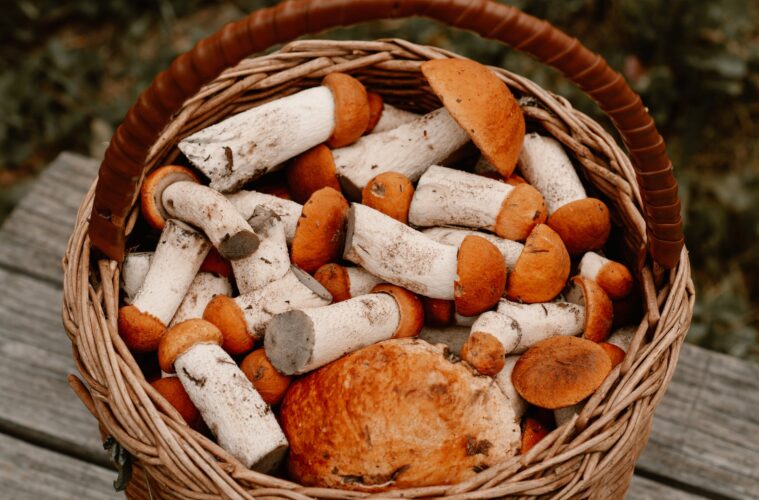Humans have relied on traditional approaches, practices, knowledge, and beliefs to address common health issues before the advent of modern healthcare technologies. Many centuries have passed, but traditional health medicines are still relevant in many cultures today.
Many traditional medicines are used in modern healthcare approaches, addressing more recent diseases. To know more about the subsequent revival of some popular traditional medicines, here’s a list we have compiled for you.
Mushroom
Medicinal mushrooms have been used as anti-inflammatory medicines, antibacterial agents, and immune boosters for many centuries. Mushrooms are primarily used in traditional Chinese medicine (TCM). Chinese believe that mushrooms have a detoxification effect on the human body, cleansing it and healing wounds. They also believe that mushrooms cleanse the kidneys and the liver, so they frequently have them in daily meals.
The medicinal properties of mushrooms have reached places beyond China’s boundaries. Today, you can find premium mushroom supplements in Australia, America, Italy, and the United Kingdom, which are among the world’s largest mushroom and truffle producers.
Many mushroom supplements are used to treat seasonal allergies, insomnia, and common colds.
Ginger
Ginger is a native plant in Asia used as a medicinal herb to treat many health conditions like diabetes, menstrual cramps, osteoarthritis, migraines, nausea, and vomiting. It also has a natural oil called gingerol.
This bioactive compound can reduce oxidative stress due to excessive radicals in the body. Moreover, in a review published in 2019, ginger is said to reduce the waist-hip ratio and the hip ratio of overweight and obese individuals.
Today, ginger comes in many forms, like syrup, tea, capsules, liquid extracts, and powders. Adults take 0.5-3 grams of ginger daily for up to 12 weeks. You can also find ginger ointments, gels, and essential oils.
Garlic
Garlic is traditionally used as a medicine for many illnesses in early civilizations of India, Japan, China, and Rome. Garlic can be used as an antibiotic to treat health issues like flu, colds, and ear and chest infections. More than these, garlic is also a natural blood-thinner, which means it aids in preventing circulatory problems like strokes, as it lowers cholesterol levels and blood pressure.
You can find many garlic-based foods, essential oils, powders, and pills. If you are taking garlic supplements, follow the directions on the package or as recommended by your doctor or pharmacist. If taking garlic-based pills, do not crush the coating since it protects your stomach.
Additionally, do not take multiple forms of garlic medicines since it may result in chemical burns in the mouth and kidney hematomas, among other side effects.
Echinacea
Echinacea or Coneflower is a group of plants that grow in the United States and Canada. These popular herbal plants are rich in antioxidants that could boost immunity. It fights viruses that cause sore throats, colds, and flu.
They are also known for many health benefits, including lowering blood sugar and reducing inflammation. Echinacea also contains compounds like rosmarinic acid, alkamides, and caffeic acid that aid with anxiety.
Modern forms of echinacea include pills, liquid extracts, teas, dried herbs, and tinctures. It is one of the most popular herbs in the United States. You can buy echinacea products in many health food and drug stores in all states.
Ginkgo Biloba
Ginkgo Biloba is a native tree grown in China to treat many health conditions that generally fall under blood circulation and brain function. The ginkgo extract, made of this tree’s leaves, is the primary focus of modern research. It contains terpenoids and flavonoids, both known for their antioxidant properties. These antioxidants help neutralize the effects of radicals in the body. Moreover, ginkgo biloba is a popular traditional medicine that can help improve circulation and heart health.
You can benefit from ginkgo biloba’s medicinal properties through different forms of medicine like tea, tablets, extract, and capsules. Modern varieties of ginkgo biloba are used to help people with dementia, glaucoma, tinnitus, blood pressure problems, and intermittent claudication.
Ginseng
Ginseng is one of the solid foundations of Chinese traditional medicine. This herb, rich in antioxidants, also helps with immune function, brain health, blood sugar control, and erectile dysfunction in men, among many others.
It also has anti-inflammatory properties, thus reducing oxidative damage to cells which can progress to chronic disease. It can also boost brain functions like mood, behavior, and memory.
Common ginseng products include tablets and capsules. You can just take them with a glass of water. It also comes in the form of tea, extract, tinctures, and candies.
Elderberry
Elderberries are rich in antioxidants called anthocyanins, making them a great traditional medicine to aid in boosting the immune system.
Hippocrates, the “Father of Medicine,” called elderberries his “medicine chest.” They also help in fighting viral infections like common colds and flu. More than these, elderberries help with conditions like constipation, joint and muscle pain, headaches, fever, and stress, among many others.
These days, elderberries come in many forms, like gummies, tea, syrups, lozenges, and pills. They are also used in food coloring, body lotions, jams, and wines.
Conclusion
Medicine has come a long way in recent years, developing modern forms of traditional medicinal plants. With continued research, collaboration, and cultural preservations, these seven traditional medicines were received in modern healthcare, offering more health benefits and treating more recent types of diseases.
Published by HOLR Magazine.



